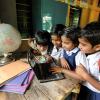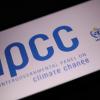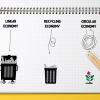The IACC Group leads the development of tools for a new generation of “coupled” global transformation pathways that are able to represent bottom-up local constraints and opportunities at the national and sub-national scale, which is a major focus of the ECE Program.
IACC’s central goal is the development of response strategies and alternative pathways towards a low-carbon economy, taking into account the many linkages to all aspects of society and the environment. For this purpose, the IACC group develops and maintains methods, including the MESSAGEix model which is at the heart of IIASA's Integrated Assessment Modeling framework.
First, the integration of climate change impacts into the IAM framework to account for the main benefits of mitigation, that is, avoided climate change impacts which, in turn, has implications for a wide set of sustainable development objectives. Better understanding how climate impacts will affect different parts of the population, taking into account the aspects of vulnerability and equity and the degree to which affected population segments are able to adapt, will therefore be a key research focus leading to a quantification of the benefits of mitigation beyond simple economic considerations based on monetized impacts.
Second, material cycles are integrated into the IAM framework to broaden the strategy space beyond classic energy- and land-based climate mitigation strategies by including important elements of circular economy approaches. Initially, the focus is on bulk materials such as steel, cement, non-ferrous metals, or plastics, with the aim to also include important critical materials for key low-carbon technologies, such as batteries and fuel cells.
Third, with decision-making support requiring input at different levels - global, regional, national, and subnational - the integration of analysis across different spatial scales is a research focus relevant to all the previously listed topics of the IACC group, requiring further methodological and tool development. Key aspects of this challenge will be, on the one hand, increasing the spatial and temporal granularity of relevant parts of the IAM framework, and on the other, explicitly representing a wider set of policy options, for example, to develop climate action plans at the national or subnational scale.
Finally, IIASA operates a community data hub for global climate change mitigation and transformation pathways, for example, by hosting multiple key datasets for the Intergovernmental Panel on Climate Change (IPCC) and the Integrated Assessment Modeling Consortium (IAMC). These globally-focused efforts are complemented by activities that support the development of national mitigation strategies as well as sector-specific activities such as supporting the finance community in using mitigation scenarios to assess the transition and physical climate change risks of, for instance, investment portfolios.
Models, tools, datasets
Projects
Staff
News

16 July 2024
Mapping global rooftop growth for sustainable energy and urban planning

19 June 2024
IIASA at the UNFCCC Bonn Climate Change Conference 2024

05 June 2024
The 2024 State of CDR Report: Scaling up CO2 removal to meet Paris Targets
Events
Focus

25 July 2024
Exploring circularity through science and art: CircEUlar project at the Vienna Climate Summit
The first Vienna Climate Biennale took place from April to July. CircEUlar was one of the scientific partners of the Biennale, contributing insights on the potential of circular economy strategies to combat climate change. Project coordinators Marina Jovanovic and Volker Krey reflect on the 100-day festival and the unique collaboration between science and art.
11 November 2023
Empowerment through science

Publications
Makowski, M. , Granat, J., Shekhovtsov, A., Nahorski, Z., & Zhao, J. (2024). pyMCMA: Uniformly distributed Pareto-front representation. SoftwareX 27 e101801. 10.1016/j.softx.2024.101801. Khan, F., Byers, E. , Carlin, D., & Riahi, K. (2024). Science-based principles for corporate climate transition risk quantification. Nature Climate Change 10.1038/s41558-024-02067-2. (In Press) Sarmiento, L., Emmerling, J., Pietzcker, R., Daioglou, V., Dalla Longa, F., Dekker, M.M., Drouet, L., Fattahi, A., Fragkos, P., Henke, H.T.J., Fricko, O. , Göke, L., Krey, V. , Lochner, E., Luderer, G., Macaluso, N., O'Keefe, K.T.V., Kennedy, K.M., Iyer, G., Rodrigues, R., Stewart, E., Usher, W., van der Zwaan, B., van Vuuren, D., Zisarou, E., & Zakeri, B. (2024). Comparing net zero pathways across the Atlantic A model inter-comparison exercise between the Energy Modeling Forum 37 and the European Climate and Energy Modeling Forum. Energy and Climate Change 5 e100144. 10.1016/j.egycc.2024.100144. Ganti, G. , Gasser, T. , Bui, M., Geden, O., Lamb, W., Minx, J.C., Schleussner, C.-F., & Gidden, M. (2024). Evaluating the near- and long-term role of carbon dioxide removal in meeting global climate objectives. Communications Earth & Environment 5 (1) 10.1038/s43247-024-01527-z. Mastrucci, A. , Guo, F. , Zhong, X., Maczek, F., & van Ruijven, B. (2024). Circular strategies for building sector decarbonization in China: A scenario analysis. Journal of Industrial Ecology 10.1111/jiec.13523.












